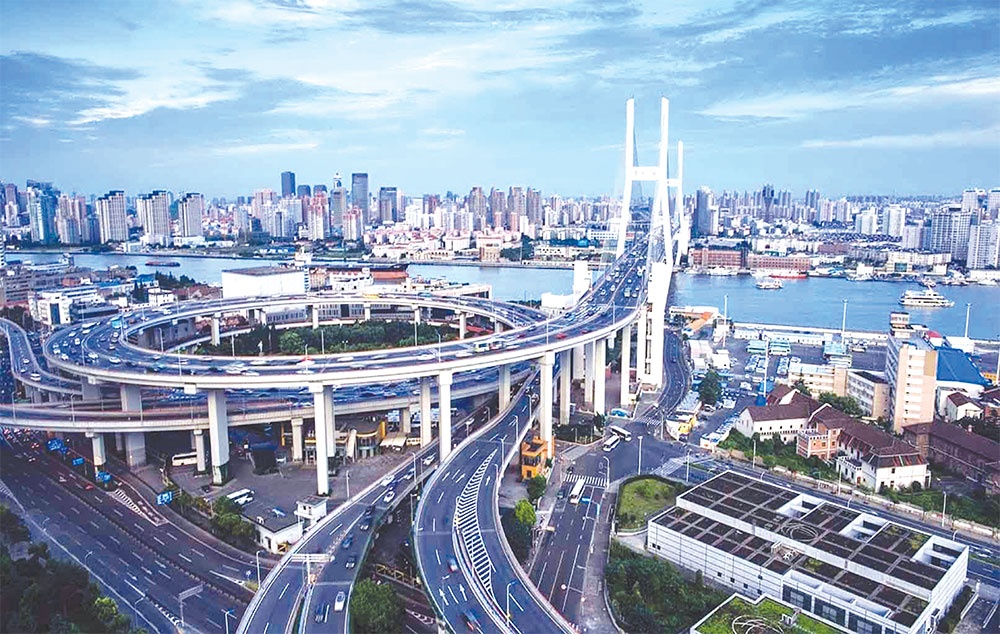Investors weigh up worth of pouring new cash into China
China’s economy is slowing down as it continues to wrestle with a punishing pandemic strategy and weakening global demand. Official growth figures for the third quarter are expected this week, and if the world’s second-largest economy contracts, that increases the chances of a global recession.
 |
| China is attempting to balance lowered foreign investor sentiment with the need for technological evolution, Le Toan |
Beijing’s goal, an annual growth rate of 5.5 per cent, is likely out of reach, and some economists do not expect any growth this year.
The country is not battling steep inflation like the United States and the United Kingdom, but it is facing up to other issues - the factory of the world has fewer customers for its products both domestically and abroad. Trade tensions are also hampering growth, while the yuan is on course to have one of its worst years in decades as it plummets against the US dollar.
A 2-year regulatory crackdown on China’s tech titans is not helping. Tencent and Alibaba reported their first fall in revenues in the third quarter. Tens of thousands of young workers have lost work, harming China’s productivity and growth in the long run.
Investors are also sensing a shift. Japan’s Softbank pulled out a huge amount of cash from Alibaba, while Warren Buffet’s Berkshire Hathaway is selling its stake in electric vehicle maker BYD. Tencent has had more than $7 billion worth of investments withdrawn in the second half of this year alone.
“Some investment decisions are being postponed, and some foreign companies are seeking to expand production in other countries,” S&P Global Ratings said in a recent note.
Despite this apparent trend, data from China’s Ministry of Commerce showed that foreign direct investment (FDI) in China’s high-tech manufacturing and high-tech services sectors grew 43 and 31 per cent respectively in the first eight months of 2022, compared with the same period in 2021.
Some venture capitalists and private equity groups know China is still fertile ground for them – it just takes more preparation. “You must pick the right sectors with policy tailwind before selecting the company. If you don’t have insight on policy trends, you’re investing in the dark,” said a private equity investor at a China-focused tech fund.
That means finding companies that align with China’s strategic goals but will not be caught on the wrong end of geopolitical complexities. As a result, many Chinese funds have narrowed in on healthcare, biopharma, and high-tech niches with no military application, such as warehouse robotics.
Trying to find this sweet spot has boosted the appeal of companies with technology that aligns with Beijing’s push to accelerate automation. With China’s population set to start shrinking this year, policymakers want machines to replace more human labour.
Retaining attraction
As for large and established companies, a September report by research provider Rhodium Group said that, while a handful of large European groups have continued to pour money into their Chinese operations, many other European investors with a presence were withholding new investment.
“Our findings point to a widening gap in how European firms perceive the balance of risks and opportunities in the Chinese market,” the report said.
Still, Rhodium director Agatha Kratz said that there was little new foreign investment in China right now. “Of course it is investible, and it should be as it’s the second-largest economy on Earth,” Kratz said. “But a lot of policies, political decisions, and geopolitical decisions are making the country less attractive.”
Joerg Wuttke, president of the EU Chamber of Commerce in China, called the Chinese market highly investible. “The appetite is there in Europe, very clearly. But again, the hurdles are high, and China is far away in many ways,” he said, adding that it boils down to the question of when China will rejoin the international economic community by opening its borders. “Since about the end of last year, we noticed that clear stronger engagement of FDI from the EU into the likes of India, Turkey, Vietnam, and elsewhere.”
While many of the foreign groups involved in the Rhodium report and others said they have no intention of leaving China altogether, they continually point to lingering and unpredictable disruptions from its pandemic policy, as well as from geopolitical entanglements.
August marked the seventh straight month that China’s debt markets suffered a net outflow, meaning more money is leaving than coming in – a trend that has been expedited by the US Federal Reserve’s aggressive interest rate hikes this year.
In addition, developing Asia’s economy is expected to grow faster than China’s in 2022 for the first time in more than three decades, the Asian Development Bank stated in a September report. The last time that happened was in 1990.
Negative spillover effects have hindered other countries, such as developing nations in Africa that have relied on China over the years for borrowing at cheaper rates than they could find in capital markets.
The overall FDI records in the region show a clear contrast. According to cross-border funding database fDi Markets, the Chinese market share has shrunk gradually over two decades since records began in 2003.
China accounted for 49 per cent of the market share in foreign-invested projects compared to its regional competitors that year – however, between January and July this year, that figure dropped to below 10 per cent.
In the meantime, other South Asian and Southeast Asian countries have started growing their stakes in such projects. India and Singapore even outpaced the Chinese market share in Asia in the same period.
Jens Eskelund, vice president of the EU Chamber of Commerce in China, said while the situation could be described as bleak, a turnaround can always be just around the corner if the correct course of action is taken.
“European companies are still downbeat about the situation and it’s grating on people that there is no clear exit strategy for China’s current pandemic strategy, but that’s why we are raising a flag to say there’s no reason it has to be this way,” he said.
Balancing development
Despite alarm over the waning momentum of foreign investment in China, official figures still paint a relatively rosy picture of inbound flow.
China’s Ministry of Commerce data showed that FDI in China rose by 20.2 per cent from a year earlier to $138.4 billion in the January-August period, with an increase of 123.7 per cent from the European Union.
Figures from the Chinese stock regulator showed that a total of 63.2 billion yuan in foreign capital was channelled into the A-share market during the same period.
Based on that, Economic Daily noted a fortnight ago, “from a longer-term perspective, the pace of foreign investment into China has not slowed down”.
Given its growing middle-income group and digital and green transformation, China’s market will continue to have the largest development potential in the world, according to Miao Wei, former Minister of Industry and IT. “Farsighted entrepreneurs will never give up the opportunity to develop in China,” he said. “In some markets, you would be quickly substituted by others if you leave, and it would be very difficult to get back your place once it is lost.”
Instead of the China+1 strategy, in which companies avoid investing only in China, the idea of adding a second or third location is becoming even more popular so that they diversify their investments further.
Hoe Ee Khor, chief economist of the ASEAN+3 Macroeconomic Research Office, said that while foreign investment is moving from China, the country’s manufacturing ecosystem was too advanced to be replaced entirely. “The global supply chain is so efficient and complex that any attempt to dismantle it is almost impossible,” Khor said.
As the world’s second-largest economy, China can still play a significant role in global supply chains and will be crucial to the world’s economic recovery as a whole. Decoupling or isolating countries or regions runs counter to globalisation, according to Lawrence Loh, director of the Center for Governance and Sustainability at the National University of Singapore.
“We should remain steadfast in the economic rationale of globalisation,” Loh said, noting that it helps promote the mobility of resources and outputs, bringing in efficiency gains for countries.
 | Vietnam Airlines, China Southern Airlines seal comprehensive cooperation deal Vietnam Airlines and China Southern Airlines have signed an agreement on comprehensive cooperation in all areas, including commerce, services, and techniques to improve flight experience of and bring outstanding value to their passengers. |
 | Apple to make iPhone 14 in India in shift away from China Apple will manufacture its new flagship smartphone in India, the US tech giant said Monday, as it seeks to diversify production away from a dependence on China. |
What the stars mean:
★ Poor ★ ★ Promising ★★★ Good ★★★★ Very good ★★★★★ Exceptional
Related Contents
Latest News
More News
- Vietnam and Laos commit to joint industrial development and research (December 03, 2025 | 19:08)
- Viettel opens representative office in UAE (November 20, 2025 | 17:16)
- VinFast signs MoUs with Indonesian banks to boost EV adoption (November 17, 2025 | 18:05)
- Vietnamese businesses pour $1.1 billion into overseas ventures (November 10, 2025 | 19:25)
- Viettel Global sets new profit record with sustained overseas growth (October 30, 2025 | 08:00)
- Coteccons charts course for regional expansion (October 22, 2025 | 17:06)
- Green GSM drives VinFast EV expansion into the Philippines with Xentro (October 10, 2025 | 18:11)
- Vietnamese investors pour nearly $847 million into overseas markets in nine months (October 08, 2025 | 18:42)
- VinFast India joins forces with State Bank of India for EV financing (October 02, 2025 | 10:05)
- MoF backs reforms to cut red tape for overseas investment (September 29, 2025 | 09:00)

 Tag:
Tag:




















 Mobile Version
Mobile Version